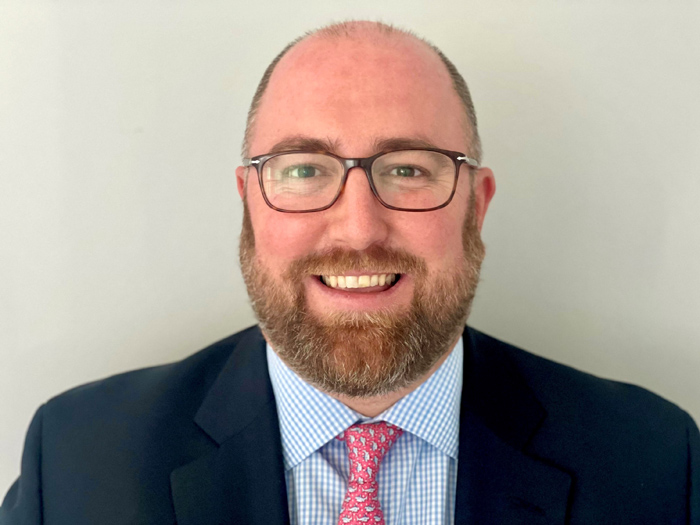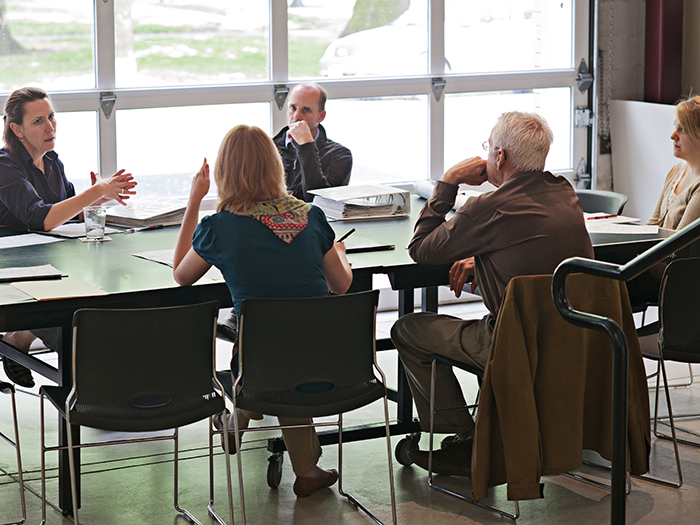Teddy Awards: Progress Report
Fit for Duty
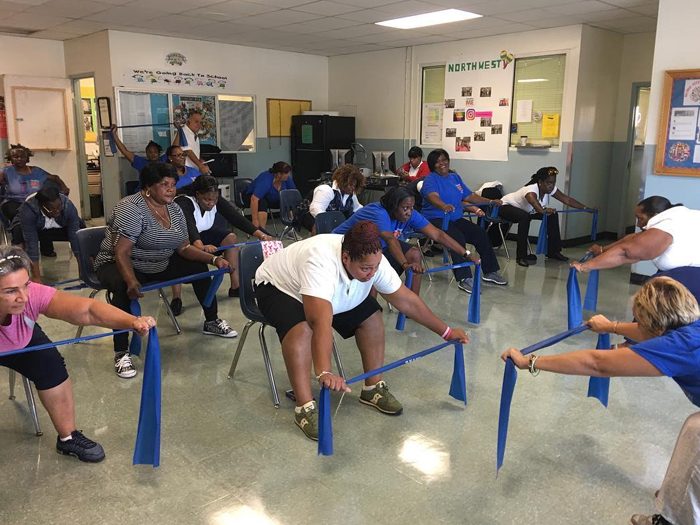
When evaluating Teddy Award applicants, one of the qualities judges look for is a program that’s built to last, with a commitment to continuous improvement.
So it’s no surprise that Miami-Dade County Public Schools (M-DCPS), a 2013 Teddy Award winner, is still aggressively pursuing strategies to reduce its injury frequency, claims costs, medical costs and lost time.
Case in point: Through regular reviews of claims data, M-DCPS identified a significant volume of claims where comorbidities were compromising the recovery of injured workers, and negatively impacting the severity of claims.
A wellness-focused injury recovery program called Rebuilding Me had been in place since 2007, but it was not having the desired impact on recovery outcomes. Rather than scrap the program, though, M-DCPS wanted to revive it.
The Rebuilding Me program focused on the Transportation department, which had the highest concentration of employees with comorbid conditions such as obesity, diabetes and hypertension.
“We finally thought — we need to take this to a different level,” said Rosa Royo, supervisor, workers’ compensation for M-DCPS. “This isn’t really doing what we want it to, and we need to put some money into it.”
Together with partners Gallagher Bassett and Coventry, M-DCPS rebranded and re-energized Rebuilding Me, what Royo calls a “targeted loss prevention program.” The pilot for the relaunch focused on the Transportation department, which had the highest concentration of employees with comorbid conditions such as obesity, diabetes and hypertension.
“They have range of motion issues, they have strength issues, weight is a real problem,” said Royo, noting that 87 percent of the department is overweight or obese.
An angioscreening of 650 employees revealed that only 98 had blood pressure within the normal range, while 250 tested abnormal and the other 302 registered as morbidly high. The comorbid conditions were taking a toll on claims cost and duration.
Even for something as minor as an employee whacking a knee against a steering wheel, said Royo, “You’re taking someone who’s very heavy and you’re immobilizing the joint. So maybe now you have a pulmonary embolism. You go from what would have been a $500 claim and now it’s a half a million dollar claim.”
Clamoring for More
Rebuilding Me includes the use of dedicated nurses to conduct one-on-one sessions with injured workers who are at increased risk for lost time based upon their health and wellness conditions.
It also features fitness classes, nutritional education and ergonomic awareness activities. The core Rebuilding Me team — comprised of Royo, Naomi Kuker of Gallagher Bassett, and Caroline Sauve of Coventry — is present at all events.
Strength and range of motion are key targets for the program. Royo related a story about an employee who showed up for a class and did an entire workout while clinging to a pillar. A short while later, she approached Royo and said, “Look I can raise my leg now.”
“That’s exactly what the program is for,” said Royo. “If you happen to lose weight, great. But it’s that range of motion and strengthening and those kinds of issues that we were really trying to address.”
“We’re spending $100,000 a year on this. But that wouldn’t even pay for one shoulder repair.” — Rosa Royo, supervisor, workers’ compensation, Miami-Dade County Public Schools
The response has been gratifying, said Royo. The initial pilot was conducted one day a week at the North East transportation depot. But soon, she said, “I had people chasing me in the parking lot saying, ‘You need to come more!’ ” It now runs three days a week with two trainers, and they have maxed out their available space and are seeking space for expansion.
M-DCPS has a solid program running now in five of its eight bus yards, with a sixth launching in January. At another location where lack of space has been a challenge so far, the workers’ labor union is clamoring for the program to be put in place.
The unions, in fact, wholeheartedly support Rebuilding Me, especially now that new U.S. Department of Transportation rules on medical fitness for duty could disqualify workers with significant health risks.
“Some of their members were at peril for losing their jobs,” said Royo. “This is a way for us as an employer to say, ‘We don’t want to throw you away. We don’t want to fire you. Here’s an opportunity for us to help you with this.’ ”
Well Worth the Cost
Because Rebuilding Me is a voluntary program, Royo and her team look for creative incentives to get people through the door initially, including lots of small branded swag items like sunglasses and lip balms.
But once an employee has committed to the program, the incentives ramp up. Employees get a towel after completing their first workout, and a T-shirt after the fifth. By the time they reach their 75th workout, they’re rewarded with a hybrid bicycle worth more than $400.
“Our offices look really funny right now, because we’ve got stacks of scales and Fitbits and bicycles.”
That may make it sound like an expensive program to pull off, but Royo is quick to put the cost in perspective.
“We’re spending $100,000 a year on this,” she said. “But that wouldn’t even pay for one shoulder repair.”
The team is highly invested in the program’s success. They work to ramp up excitement within the Transportation centers, and created an online social media presence as well, through Instagram (@rebuildingmemdcps). The Instagram feed includes photos of events and classes, nutrition and fitness tips, recipes and motivational messages.
Royo hopes to build on the program’s success and popularity and keep it growing in order to maximize the impact.
“The hypertension issues, the weight issues, the musculoskeletal issues … I know this program can’t address all of these things as much as we’d like, but the better the penetration, the better the outcomes we’re going to have,” she said.
“We always try to do something that is innovative in our program, and I really think that this is special.” &
_______________________________________________________
Read more about the 2016 Teddy Award winners:
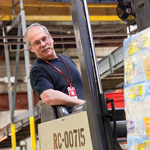 Bringing Focus to Broad Challenges: Target brings home a 2016 Teddy Award for serving as an advocate for its workers, pre- and post-injury, across each of its many operations.
Bringing Focus to Broad Challenges: Target brings home a 2016 Teddy Award for serving as an advocate for its workers, pre- and post-injury, across each of its many operations.
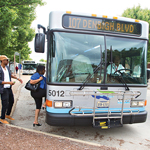 The Road to Success: Accountability and collaboration turned Hampton Roads Transit’s legacy workers’ compensation program into a triumph.
The Road to Success: Accountability and collaboration turned Hampton Roads Transit’s legacy workers’ compensation program into a triumph.
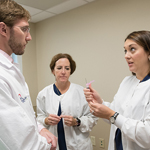 Improve the Well-Being of Every Life: Excela Health changed the way it treated injuries and took a proactive approach to safety, drastically reducing workers’ comp claims and costs.
Improve the Well-Being of Every Life: Excela Health changed the way it treated injuries and took a proactive approach to safety, drastically reducing workers’ comp claims and costs.
 The Family That’s Safe Together: An unwavering commitment to zero lost time is just one way that Harder Mechanical Contractors protects the lives and livelihoods of its workers.
The Family That’s Safe Together: An unwavering commitment to zero lost time is just one way that Harder Mechanical Contractors protects the lives and livelihoods of its workers.
More coverage of the 2016 Teddy Awards:
Recognizing Excellence: The judges of the 2016 Teddy Awards reflect on what they learned, and on the value of awards programs in the workers’ comp space.
Fit for Duty: 2013 Teddy Award winner Miami-Dade County Public Schools is managing comorbid risk factors by getting employees excited about healthy living.
Saving Time and Money: Applying Lean Six Sigma to its workers’ comp processes earned Atlantic Health a Teddy Award Honorable Mention.
Caring for the Caregivers: Adventist Health Central Valley Network is achieving stellar results by targeting its toughest challenges.
Advocating for Injured Workers: By helping employees navigate through the workers’ comp system, Cottage Health decreased lost work days by 80 percent.
A Matter of Trust: St. Luke’s workers’ comp program is built upon relationships and a commitment to care for those who care for patients.
Keeping the Results Flowing: R&I recognizes the Metropolitan Water Reclamation District of Greater Chicago for a commonsense approach that’s netting continuous improvement.






